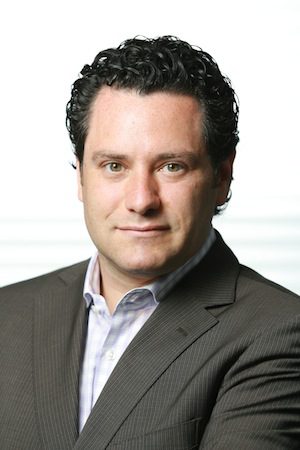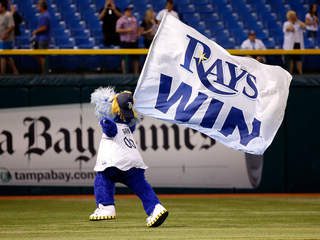
 Through The Fence Baseball recently sat down with Metis Sports Management President Storm Kirschenbaum. Storm is the agent of one of our writers, Dan Taylor, and formed MSM in July 2007. He’s represented over 140 professional athletes and is a MLBPA Certified Player Agent. Additionally, he is a contract advisor in both the CFL and NFL. Storm has a storied baseball career, as well, that has landed him stops at Long Island and University of Florida where he played along side teammates David Eckstein, Brad Wilkerson, Mark Ellis and Josh Fogg. For more information about MSM and Storm, Click Here, or email us at Throughthefencebaseball@gmail.com.
Through The Fence Baseball recently sat down with Metis Sports Management President Storm Kirschenbaum. Storm is the agent of one of our writers, Dan Taylor, and formed MSM in July 2007. He’s represented over 140 professional athletes and is a MLBPA Certified Player Agent. Additionally, he is a contract advisor in both the CFL and NFL. Storm has a storied baseball career, as well, that has landed him stops at Long Island and University of Florida where he played along side teammates David Eckstein, Brad Wilkerson, Mark Ellis and Josh Fogg. For more information about MSM and Storm, Click Here, or email us at Throughthefencebaseball@gmail.com.
Let’s get the ball rolling.
Through The Fence Baseball: The trade deadline was hectic this year, what was it like?
Storm Kirschenbaum:
Intense. There are usually two scenarios that I see during the trade deadline period: One, my client isn’t happy with his situation in the organization and is looking for a change of scenery; or two, he is being sought after by several teams to strengthen their depth at his position. I had two players this year that fell into both situations.
My first client, had two years of major league service time, but found himself in AA because the General Manager decided to entertain other pitchers in both the Majors and at the AAA level. My client went into spring training competing for a starting rotation spot and was told he put on too much weight during the off-season and was sent to extended spring training to get on a weight loss program. The team was very adamant that if he satisfied their “program” he would find himself back in the big leagues. After 30 days in extended spring training my client lost weight and was throwing at an all-time high in velocity. We were told he would go to AA and then move his way up through the organization to compete again for a starting rotation job. After dominating AA for over 2 months, he was told that he had no chance of winning a big league starter job AND there was no room in AAA for him. Obviously, my client was not happy after fulfilling all of their demands and wanted to find a new organization. We requested a trade and the team granted us permission to speak to other clubs to find a match.
We found several good locations; however, his current team was not in a hurry to answer the trade requests. They felt it was a better situation that my client stay within the organization and become a “safety blanket” incase their AAA or ML starters went down with an injury. We voiced our displeasure with this request; however, at the end of the day, he is under contract with the Club and our hands were considerably tied. I instructed my client that I would do my best to make sure he would not be placed on the 40 man roster at the end of the season and get locked in for next year. We did not want to come back to the same team next season and he was a free agent at the end of the year, so we knew he would be entertaining numerous offers during free agency. He is having his best season in baseball and will be a top of the line free agent at the end of the season. Unfortunately, he is stuck playing for a team that doesn’t see him as a long term rotational starter and is basically being used by the Club because they have contractual control. This was a disappointing trading deadline situation, however, we feel like he will be in a very good place come 2012.
My other client was having his best season ever, and was being sought after by numerous clubs to provide depth at catcher. This client had less than one year of service time, but was a AAA All-Star three years in a row. He was a free agent after last season and was offered a contract by a Club that was 20 minutes from his hometown. He had dreams of playing for his hometown team, even though he knew he would start the season in AAA and be the third catcher in the organization. We received calls from five teams during the trading deadline and we seriously looked at each scenario. My client was given confirmation by his current club that he would be a candidate to get called up this season and also would be the front-runner to be the back up catcher in the big leagues next season. His current club did not want to see him go and they were very comfortable with his prospects in their organization.
While we were flattered by the interest from other teams, all parties felt he would be better off staying on his hometown team and reject the trade requests by the other teams. This situation could have put him in the big leagues a month sooner, however, staying with his current team was in his long-term best interest. This client is currently playing extremely well and will be called up in September when rosters expand. He will be competing for the back-up catcher role next season if he decides to stay with his current team, but may elect to test the free agent market once the season ends.
TTFB: In recent memory, there’s been some interesting things negotiated into contracts. (Roy Oswalt – bulldozer) What’s the most interesting thing that you’ve negotiated into a contract?
SK:
I haven’t had a need to put in a bulldozer quite yet; however, I have negotiated some interesting terms. We have negotiated mandatory interpreters for foreign players, plane tickets for family members to attend games and a player’s favorite cell phone model. Most contracts are cut and dry and stay within the parameters of the Collective Bargaining Agreement, so there are very few contracts that see those “special” off the wall requests.
TTFB: At what point did you decide you wanted to become an agent and what does it take to be one?
SK:
My turning point to become an agent happened while I was while playing college baseball at Long Island University. I had come to the difficult conclusion that I would personally never play Major League Baseball, because I lacked arm strength and size. I was always a good hitter, but never found a position (I played OF and was converted into a catcher my senior year). I applied to several law schools during my senior season and decided on University of Detroit Mercy School of Law. I was born and raised in Michigan and was looking forward to moving back home. I started to contact several agents I knew and was using them as mentors to provide me an idea on how to become an agent and some of the finer details in the industry.
I had several friends get drafted in the MLB Draft and asked if I could represent them. I was lucky they liked me enough to give me this opportunity, considering I was 21 years old and knew very little in how to negotiate a contract. During my first year in law school, I started my own agency while I was a full-time student. I represented 10 minor league baseball players in law school and it eventually spun into more clients once I graduated and was hired by a law firm to start a sports division. After 3 years with this law firm I was given an opportunity to start my own agency and began Metis Sports Management, LLC. We are in our fourth year and have become one of the fastest growing agencies in the country.
To be a successful agent, you need drive, determination and an ability to hear the word ‘No’ and not take it personally. It is certainly not a requirement to be an attorney, but the experience you garner in the legal industry gives you a leg up on non-lawyers. I always preach during my lectures that it is vital to practice the law and become comfortable in a court room. This experience provides the necessary tools to be successful in negotiations and arbitration matters. The most important piece to becoming a successful agent is be trustworthy and honest. These traits will shine through and athletes will appreciate you being up front and honest during your representation relationship.
TTFB: What’s the longest negotiation with a GM that you’ve had?
SK:
The longest negotiations usually take place during the MLB Draft. However, I experienced a negotiation that took 5 weeks for a player that went overseas to play in Japan. The majority of time was to get permission from Major League Baseball and also work on Visa issues. If you are prepared in your negotiations and the team is serious in getting a deal done, the duration shouldn’t take a long time. I’m not a believer in holding players out of camp or using the media as a negotiation tool. If both sides are prepared and know the marketplace, a deal will reach a conclusion.
TTFB: How do you become an agent and any advice to those wanting to become one?
SK:
Begin relationships NOW with athletes. The closer in age you are with current players, the more you will relate to their lifestyles. Once you have formed relationships with athletes, go to law school or get your MBA. After you graduate, get a paying job and continue your relationships with your athlete friends. You are maintaining these relationships because you have a non-threatening approach to them. Once you believe you have a firm grasp of the law, you should begin contacting the athletes you are close with and let them know you are considering becoming an agent. Ask if they would be interested in signing with you or an agency you get employment from. This approach will give you the most marketability to another agency and also provide a platform to start your own agency.
I always make it perfectly clear to my students that if you think you will make a living as an agent in your first several years, you are in for a rude awakening. Unless you have guaranteed pay from a sports firm, you will need to maintain another source of income. It takes 5-7 years before you can live comfortably without supplemental income. This is a major reason why many agents try this business but don’t last long.
TTFB: If you were a player, would you hire yourself and your team?
SK:
Absolutely. As a player I would be looking for a representation team that understands the path I am headed towards. As a former player and as an experienced attorney, I can relate to all of my clients. My agency treats every client like family and we make each client feel as though he is our only client. Personalized attention is a term that gets thrown around a lot in this business. I am proud of my agency because we truly care about each client and keep open lines of communications with all of our players.
As an agency, we are as full service as you can get. We offer everything from contract negotiation, marketing and endorsement opportunities, financial and insurance referrals, legal services, accounting and bill payer services, relocation services and we even just opened up a memorabilia division. If I were a player I would feel overly satisfied with my agency. I would know that everything I need off the field will be taken care of and that my agent is only a phone call away.
TTFB: What’s the future like for our writer, Daniel Taylor?
SK:
Dan Taylor is one of my favorite clients. He is a very motivated individual and has some exceptional on the field tools to make it to the big leagues. The Arizona Diamondbacks front office is a fan of Dan Taylor. I believe Dan will see the big league in 2 years. He can start, relive and close games. As a left handed specialist, Dan brings a lot to the table and is a student of the game. He will continue to grow and improve every year. I’m excited to see Dan mature through his rise in the DBacks organization!
TTFB: You were a successful baseball player yourself, having won several prestigious awards, do you miss it?
SK:
I will always miss playing baseball at a competitive level. I enjoyed my college years, playing for number one nationally ranked University of Florida and then transferring to a smaller Division I school at Long Island University. I played against some great talent and had some successful years. I try to throw the ball around occasionally playing in hardball and softball tournaments. One thing I am confident in, is that I made the right move ending my career after college. My arm had maybe one more season in it. I can last one game now and need to rest for a week!! That’s what getting old does to you! The mind is certainly there, but the body keeps telling me to stop! Its a blessing that I can live vicariously through my clients. At times, its more rewarding seeing their successes on the field than playing yourself!
TTFB: Any good college baseball stories?
SK:
I have one that always sticks out. I tore my ACL my Junior year in college right after Fall Ball. I told my doctor that I wanted to be ready for the first game of the season which would have allowed me 3 months of recovery and rehab. I had watched Jerry Rice get back to football in the same time period and was determined to do the same. After a rigorous rehab period, I made it back for the first game. My coach refused to start me because he didn’t feel I was ready to compete at a high level so he kept me benched for the first 5 games. He finally put me in to pinch hit during a tie game and I blasted a homerun. After that game I was a starter every game until my career ended.
TTFB: To date, what’s the best memory you’ve had since becoming a baseball agent?
SK:
My best memory was seeing my first client get called up to the big leagues. I had represented this client for 4 years and I remember like it was yesterday getting a phone call from him saying he was called up. We both cried on the phone and couldn’t believe that the day had finally become a reality. It is so rewarding seeing all your hard work as an agent pay off. Baseball is one of the most difficult sports to succeed as a player and an agent. Thousands of players never get an opportunity to see the big leagues and thousands of agents never represent a big league player. It’s a battle every day, but the most rewarding feeling when your goals are obtained.
TTFB: Last but not least, how often do you get asked about or hear the movie name Jerry Maguire?
SK:
Almost on a daily basis. You learn that the “everyday person” can only relate to your job from that movie. I was a big fan of Jerry Maguire. I actually have the official movie poster autographed by the entire cast hanging in my office. Along with a football signed by Cuba Gooding, Jr., that says “Show me the Money!” I tell people, it was a movie, believe me the job isn’t as exciting as Tom Cruise made it seem!






